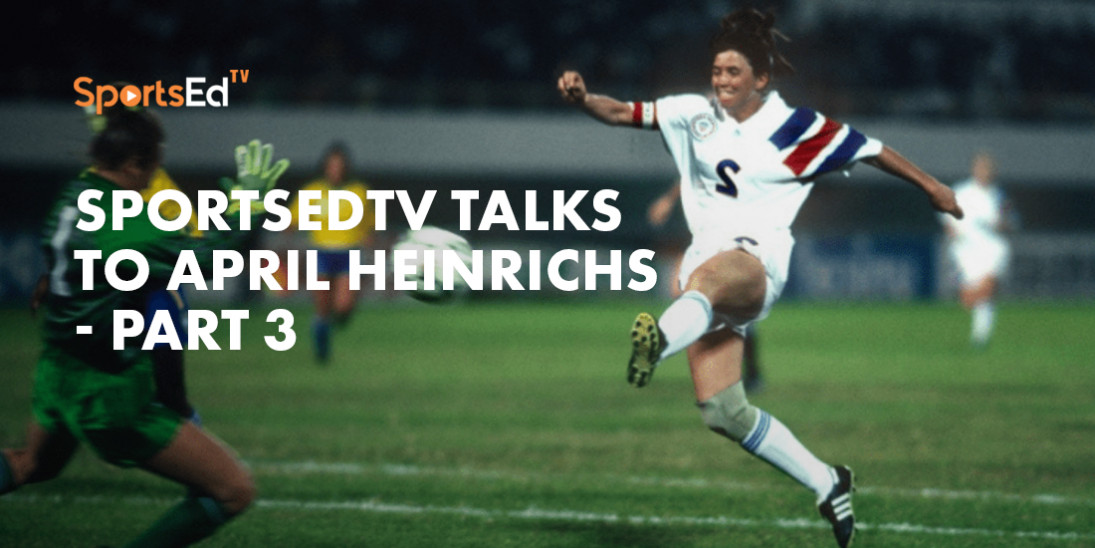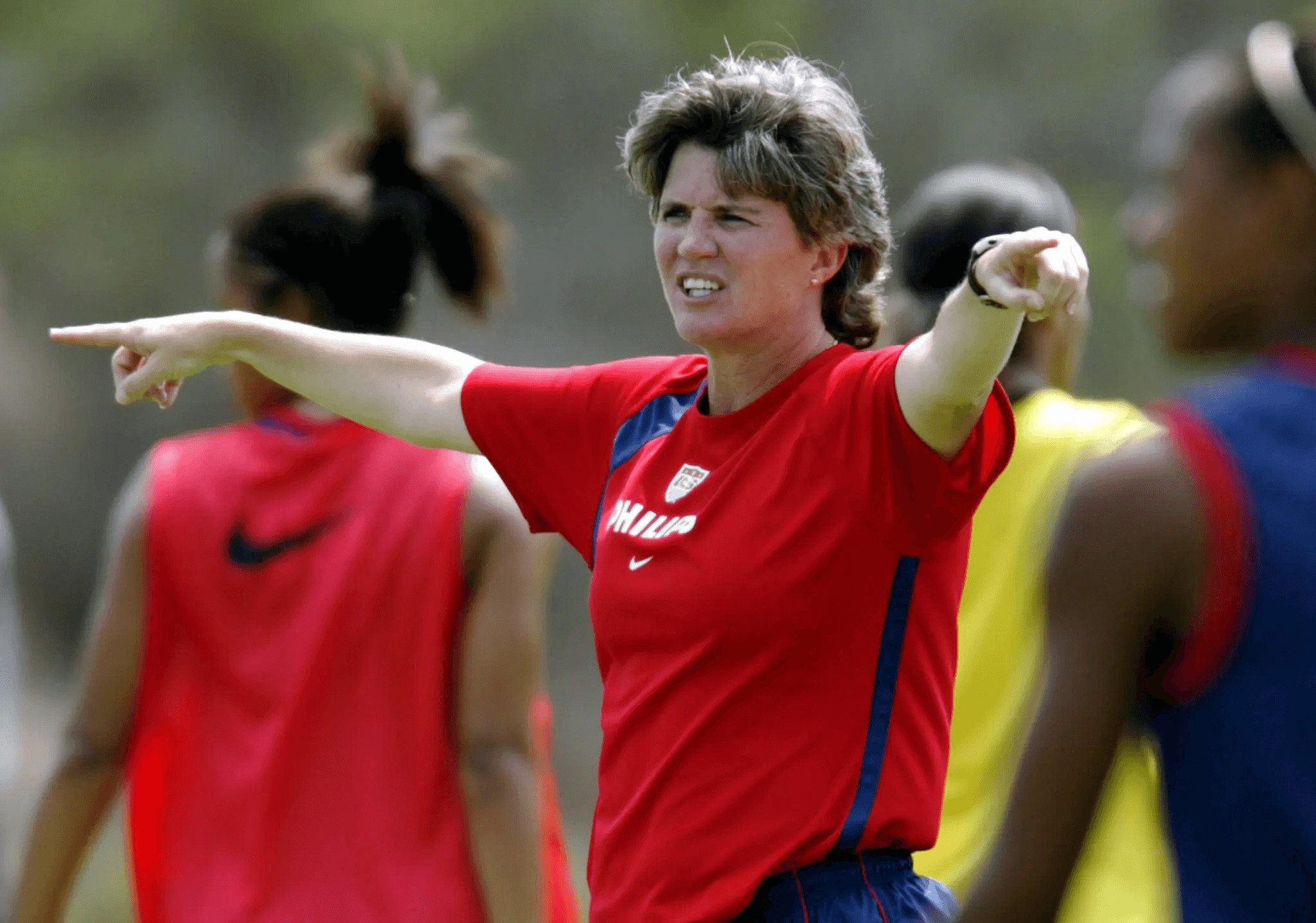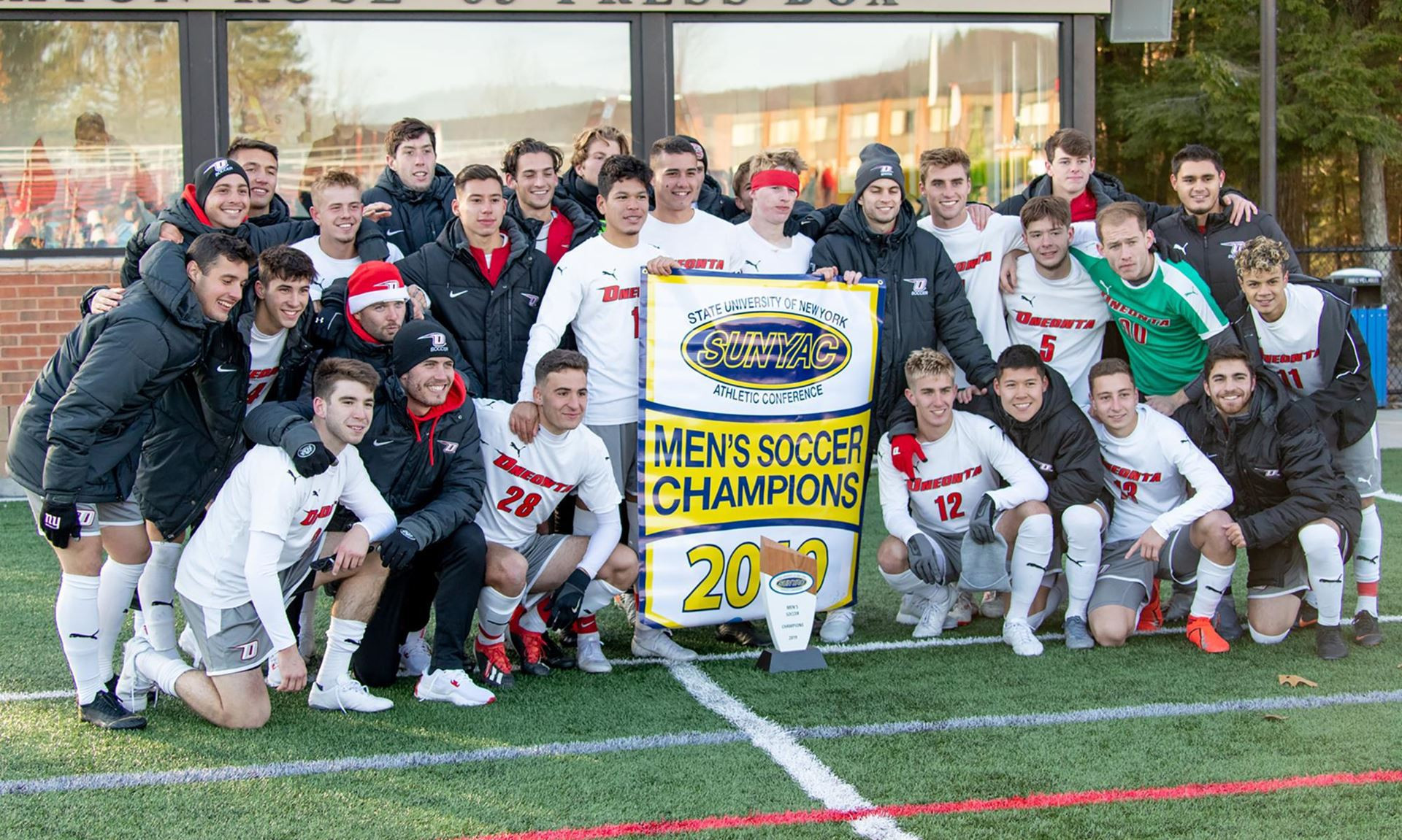Soccer
Welcome and thanks for visiting...

April Heinrichs On Playing vs Coaching, Leadership, and Communication

April Heinrichs captained the US Women's National Team to win the first ever FIFA Women's World Cup in 1991, and in 1998 became the first ever female player inducted into the National Soccer Hall of Fame. She went on to be the head coach of the USWNT and led the team to a silver medal at the 2000 Olympics, 3rd place in the 2003 FIFA World Cup, and a gold medal at the 2004 Olympics. Here, she sits down with SportsEdTV to discuss her life, story, and learnings.
SportsEdTV: Did a lot of the leadership skills from playing and from being captain translate over to coaching? And how do you compare the challenges of playing to those of coaching?
April: Yeah, I think the leadership skills translate. The work ethic definitely does, which is essential for coaching. As a player it’s intense, but it's a three to four hour commitment most days. As a coach, you're at it from nine in the morning till, depending on what kind of coaching you're doing, six or seven o'clock at night. Coaching the national team we could be working until midnight. So it's quite a commitment. It's a commitment to excellence, to reviewing all aspects of the game, and working with all different types of players and personalities. So the work ethic fit me perfectly because I was a hardworking player as well.
The communication piece was very different, however. I think that's where I was not as good as I would like to have been. When I think about being a national team coach, I was around 36 years old. If I was a national team coach at 56, I would have been better. But you also don't turn those opportunities down out of fear. You think you're ready, so you dive in and you learn. I loved every minute of it. I threw myself into coaching in the same way I did into playing. And I did that from about 1987 to 2018. It was a lot of years, as a college coach or a national team coach or youth national team coach, and I loved every minute of it. And then I moved into the administrative side, which I'm still in. And, it's less, it's definitely a drop off. Being a player is the best, then being a coach second.
SportsEdTV: You mentioned there was a big difference in the communication skill needed for coaching versus playing. Tell me about what communication skills translate from being a captain to coaching, and what were the gaps between the two in your experience.
April: When you're a teammate communicating with teammates, you’ll fit really closely with some, you have to work at other relationships, and for some people you don't really connect and they don't connect with you, and that’s fine. As a coach, you really need to find a way to connect with every player. You have to understand each of them, and what they need, and what is important to them. When I became the national team coach, I assumed that everybody was confident in their ability. It surprised me then, and it still surprises me now, that some players were just not that confident despite their amazing abilities. There's this need for feedback and assurance. Even coaching players that I used to play with, I didn’t realize how much I needed to adapt the way I approached the relationship. It’s a different dynamic, and they need much more from you as a coach than when you’re a player even if you are the captain.
Also, I inherited a group that wasn’t young and upcoming. They weren't in the middle of their career. They were in the latter years finding ways to still contribute. They were still great players. And it's my responsibility as the head coach to challenge them and to find younger players that are ready to step up, but I realized that despite this I also had to tend to the feelings of these older players. For example, I can remember one conversation I had with a senior player. I pulled her off the field with 20 minutes to go in a game. I don't even recall the score. But she was pissed, and I said, ‘Listen, this new young player needs 20 minutes more than you need 90 minutes right now. You just had 70.’ But it didn't translate for her, and she saw it as, ‘you're putting me out to pasture and I'm not going to make the team.’ And it was absolutely nothing like that.. I had just assumed that these players were deeply confident and secure. I think players, when it comes to their relationship with their head coach, they need more affirmation than I realized initially and more than I gave them at the time.
SportsEdTV: When you were a player, did you feel that as well? That need for affirmation from your coach?
April: Yeah, I did feel a need for affirmation, but I was also not ever unclear on my status. And so I assumed that the players are fairly clear on their status.
Part 4 is coming soon! Follow us on Facebook and Instagram so you don't miss it.






